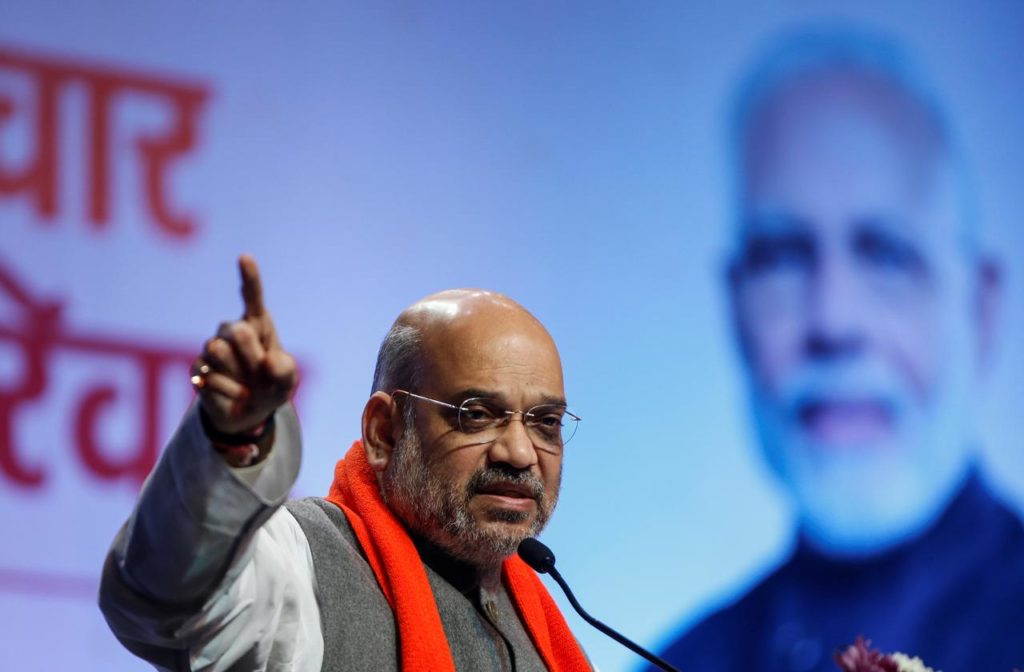U.S. Panel Eyes Sanctions Against Amit Shah Over India’s Citizenship Curb For Muslims
Dec 10, 2019 | Pratirodh Bureau
FILE PHOTO: Amit Shah addresses Bharatiya Janata Party workers in Ahmedabad on February 12, 2019
A federal panel on religion has urged the United States to weigh sanctions against Home Minister Amit Shah if India adopts legislation to exclude Muslims from a path to citizenship for religious minorities from its neighbours.
Shah is a close associate of Prime Minister Narendra Modi, whose Hindu nationalist-led government is seen by critics as pushing an agenda that undermines the secular foundations of India’s democracy.
On Tuesday, parliament’s lower house approved the measure covering citizenship for non-Muslim minorities, specifically Buddhists, Christians, Hindus, Jains, Parsis and Sikhs, who fled Afghanistan, Bangladesh and Pakistan before 2015.
The bill has prompted criticism at home and abroad, as it marks the first time India is weighing religion in granting citizenship, although it must first pass the upper house of parliament, where Modi’s party lacks a majority.
The measure goes against India’s constitution, which guarantees legal equality to people of all faiths, the U.S. Commission on International Religious Freedom said.
“If the CAB passes in both houses of parliament, the United States government should consider sanctions against the Home Minister and other principal leadership,” the panel said in a statement, referring to the Citizenship Amendment Bill (CAB).
The panel is a bipartisan body that makes foreign policy recommendations to the U.S. leadership.
India’s foreign ministry called the panel’s statement inaccurate, saying the bill sought to help persecuted religious minorities already in the country.
“It seeks to address their current difficulties and meet their basic human rights,” said ministry spokesman Raveesh Kumar.
Hindus in Bangladesh, Christians in Pakistan and Sikhs in Afghanistan, all Muslim-majority nations, have faced violence in recent years, but India’s opposition parties, minority groups and academics have said the bill discriminates against Muslims.
During Monday’s parliament debate, opposition politician Asaduddin Owaisi ripped up a copy of the bill, calling it a move by the Modi government to render Muslims “stateless”.
But Modi’s Bharatiya Janata Party (BJP), which promised the measure in an election campaign that swept it to power in May, says the law is needed to help persecuted minority individuals in its neighbours.
“If minorities in our neighbouring countries are being persecuted, then India cannot stay a silent spectator,” Shah told parliament.
The bill is the third key election promise Modi’s government has delivered since August.
The scrapping of autonomy for the disputed Himalayan region of Kashmir and permission from India’s top court for moves to build a Hindu temple at a disputed religious site have bolstered right-wing supporters, and diverted attention from a slowing economy.
Now the BJP must win support from smaller regional groups to push the bill through the upper house of parliament this week.
